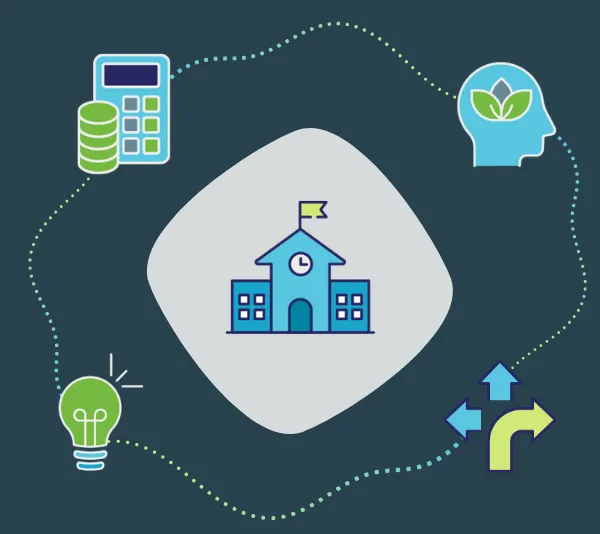Addressing the Youth Mental Health Crisis Through Schools-Based Prevention
The youth mental health crisis in the United States has been on a steady rise since 2003. In 2022, a staggering 15% of youth aged 12 to 17 reported experiencing a major depressive episode. This trend is even more pronounced among minorities and marginalized populations. According to the Surgeon General, a key component of addressing the mental health crisis is creating safe, affirming, stigma-free educational environments.
At the 2023 Everfi Impact Summit, Lauren Bernstein, Head of Corporate Partnerships, led a discussion about the youth mental health crisis and how to address through school-based prevention. On the panel was Merrill Friedman, the Regional Vice President of Inclusive Policy and Advocacy at Elevance Health. During the session, Lauren and Merrill explored how purpose-driven organizations are working to level the playing field by expanding access to critical mental health education and emphasized the importance of engaging youth in discussions about mental health.
Factors Contributing to Youth Mental Health Challenges
There are a multitude of factors contributing to the rising rates of anxiety and depression among young people. These factors include social media, socio-economic changes, school pressures, family dynamics, and the constant exposure to news cycles. Even though there is better access to public benefits, there is still a stigma for young people around mental health. It’s important for young people to be able to build trusting relationships in addition to having mental health education and support in school.
Effective Initiatives and Programs
Digital curriculum, like the programs being offered by Everfi and through our partners, are crucial in bringing mental health education into schools. “Getting information into schools I think is really important. That’s where kids spend so much of their time,” said Merrill. In addition to mental health education and support, Meryl also stresses the importance of physical activities like gym class, recess and sports to help students with mental health.
The Role of Education in Health Equity
There are barriers that young people face in accessing mental health care, one example being a lack of control in choosing their own therapist. Young people need to build their own support networks and have access to resources outside of their immediate families. In addition to the work that we do together around mental health education, Elevance Health is also investing in healthcare literacy, and focused on breaking barriers to equitable healthcare for individuals with various disabilities.
Healthcare Literacy and Empowerment
There is power to understanding one’s own physical and emotional experiences through healthcare literacy. Accessible information, culturally competent providers, and financial literacy are all essential components in achieving this empowerment. It’s important to empower young people to advocate for themselves and take control of their personal agency in matters of healthcare.
Young people are at the core of creating a better mental health trajectory and healthcare system. The knowledge that they possess, and the perspectives they bring, are shaping mental health support systems. “We need to engage young people in the discussion and providing support, not only from families but also from chosen support networks,” said Merrill.
Representation in healthcare and educational spaces is pivotal in creating opportunities for all individuals, regardless of their background or abilities. There is a critical need for proactive measures in addressing the youth mental health crisis. By integrating mental health education, building inclusive support networks, and empowering young individuals with knowledge, we can collectively work towards a more equitable and supportive environment for the next generation.


